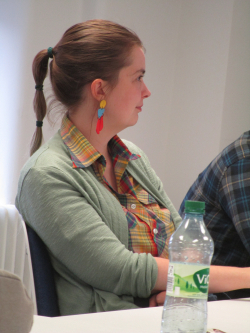UP3: Affective Empathy and Epistemic Success (Liverpool)
The third subproject focused on understanding the epistemic successes and failures of empathy. It seems like empathising is something that people can do to greater and lesser extents. Suppose two people both empathise with a friend who's struggling to find somewhere to rent. Both empathisers might feel the frustration and the exasperation of their friend as she complains to them, but one of those friends might feel it more strongly, or more get more of the details about her experience right. Perhaps because he has been through similar struggles himself recently, or he knows the friend more closely.
There are a number of important avenues to research about the differences between the more and less successful tokens of empathy. What is the difference between these cases? What are some factors that tend to improve or worsen our empathic accuracy? What mental states are the most important to grasp, in order to understand another person?
The subproject has produced a number of papers under review that look into the above issues.

Lizzy Ventham
Primarily a moral philosopher, Lizzy has always been interested in the intersections of ethics and other areas of philosophy – particularly epistemology, philosophy of mind, and philosophy of psychology. In particular, she works on questions about
motivation, pleasure and pain, and normativity.
Before joining the Liverpool half of the "How Does It Feel?" project, Lizzy worked for two years at Trinity College Dublin. She has two publications: one on "Reflective Blindness, Depression and Unpleasant Experiences" in Analysis and one on "Supererogation and the Case Against an 'Overall Ought'" in American Philosophical Quarterly.
